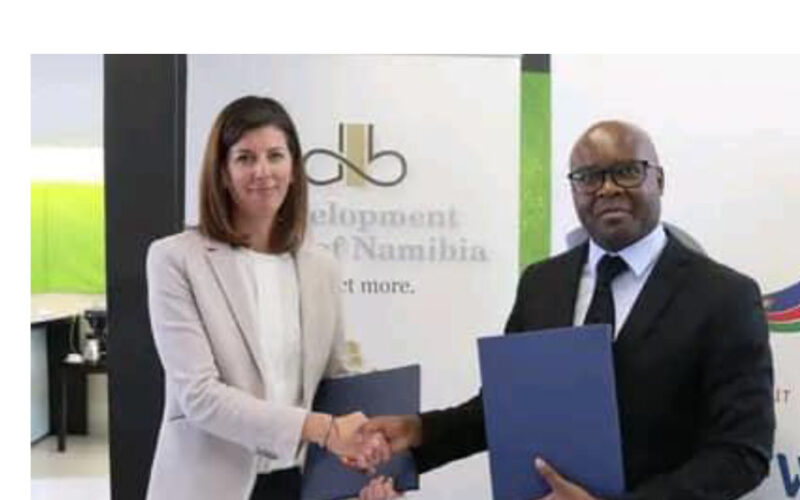Stefanus Nashama
The Development Bank of Namibia (DBN) on Wednesday signed a N$600 million concessional loan agreement with the KfW, the German Development Cooperation, to develop infrastructure to mitigate challenges presented by climate change.
During the signing ceremony this week, both institutions announced that the loan will be used to develop climate-related infrastructure, such as renewable energy, water and low-carbon transport projects.
The agreement follows the first credit line amounting to approximately N$240 million, which was signed between DBN and KfW in December 2018.
DBN Chief Executive Officer, Martin Inkumbi said the first credit line after being successfully placed in the market, has assisted private companies to set up solar panel infrastructure.
He said the new agreement will provide long-term finance for DBN to provide private and public investors with incentivised conditions for climate-related infrastructure projects.
He highlighted that the Bank has developed a project pipeline for eligible projects, particularly in the Renewable Energy space over the past years and is looking forward to ultimately moving ahead with the financing.
“The Bank is not just aware of the need for infrastructure that reduces emissions, but also for climate adaptation in light of the threats of heat and drought to Namibia, he noted.
“Access to affordable financing is a key element for the realisation of climate-related infrastructure projects,” Inkumbi mentioned.
According to him, the second credit line aims at providing solutions to climate challenges, saying the funding would provide extra efforts to improve the Bank’s models and options.
“This would assist in growing the Bank’s portfolio of projects to address climate change and adaptation and position DBN as the ‘national and regional climate bank,” he stressed.
Meanwhile, KfW Director Beatrice Lucke, said DBN can only achieve economic growth and social development in Namibia by attracting investment in green and transformative infrastructure.
This, she said is the basis for any sustainable development around the world.
She also advised that the concessional loan be used to finance projects that maximise DBN objectives and mitigate economic challenges in the country.
According to DBN’s portfolio of climate-mitigating projects, infrastructure projects for solar photovoltaic, wind generation, rural and urban water infrastructure and public transport projects are amongst the targeted development.




